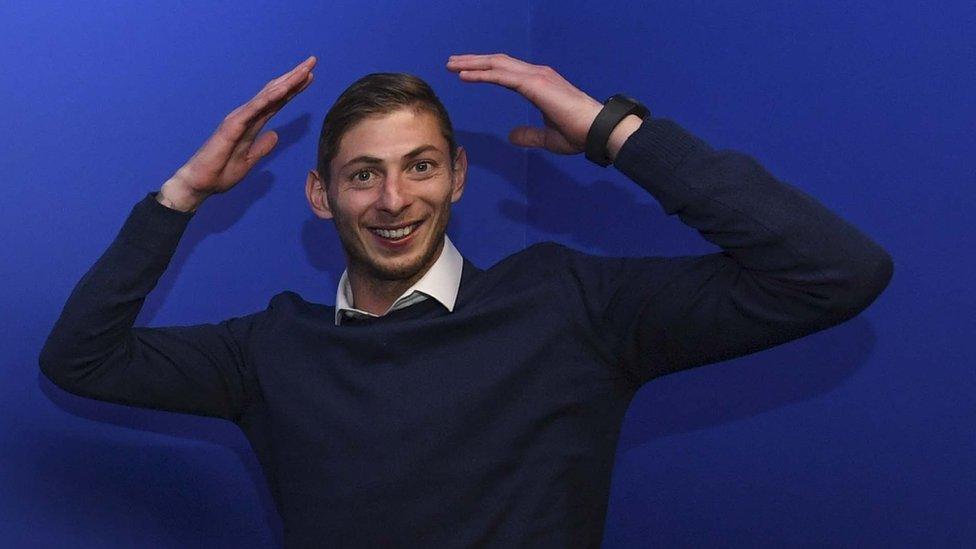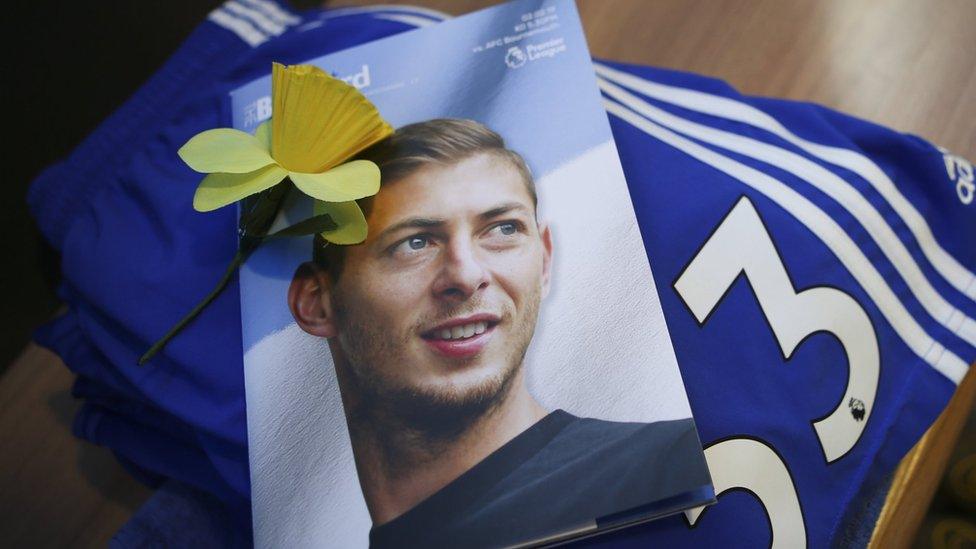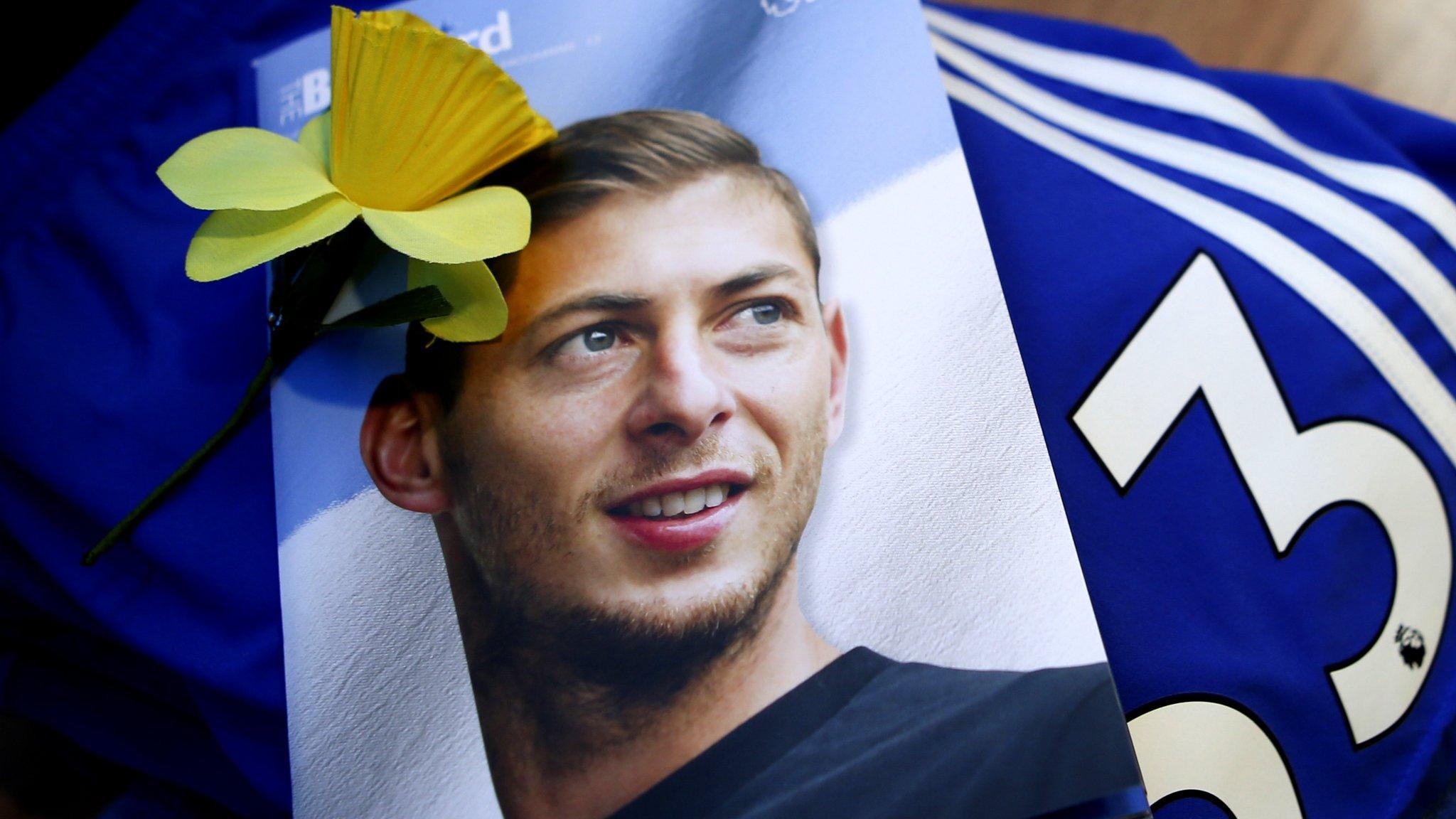Emiliano Sala family queries timing of carbon monoxide tests
- Published

Striker Emiliano Sala signed for Cardiff just two days before the plane crash
The family of Cardiff City striker Emiliano Sala has questioned why initial toxicology tests carried out on his body did not include checking for carbon monoxide.
The Air Accidents Investigation Branch (AAIB) revealed in August that potentially fatal levels of carbon monoxide had been found in his blood.
Sala was found dead after the plane he was travelling in crashed in January.
His family's lawyer was speaking at a pre-inquest review in Bournemouth.
Barrister Matthew Reeve asked for blood samples to be kept until the inquest has been concluded.
Mr Reeve told the senior coroner for Dorset, Rachael Griffin, there was an "unexplained question" as to why the blood tests detecting carbon monoxide were not carried out until June.
"Why was it not felt necessary to test for carbon monoxide in February but it was at some... later time?" asked Mr Reeve.
Ms Griffin said she would ask the AAIB for an additional report on this matter and ordered that the blood samples should be preserved until the conclusion of the inquest process.

Sala was travelling from Nantes to Cardiff when the plane he was in crashed
Argentinian Sala, 28, and pilot David Ibbotson, 59, crashed on 21 January while travelling from Nantes in France to Cardiff.
Sala was en route to join Cardiff City, transferring from Nantes FC for £15m.
His body was recovered from the wreckage of the plane on the seabed in early February.
Mr Ibbotson, 59, of Crowle in Lincolnshire, remains missing.
The wreckage of the plane in which Sala died has moved from the location in the Channel where it was found in February, the hearing was told.
Shipwreck hunter David Mearns, who helped locate the wreckage of the aircraft on the seabed, had returned to the site in October on behalf of the Sala family and found that the plane was no longer intact.
Ms Griffin asked the AAIB representative at the hearing, Geraint Herbert, why they had decided not to recover the wreckage as the family had requested after the finding of carbon monoxide emerged.
Mr Herbert said the Piper Malibu was a "quite simple" aircraft with only a few ways in which the gas could enter the cabin.
"We felt we could get to the bottom of the relevant safety issues without recovering the aircraft, especially after we had the information from the first visit to the wreckage," said Mr Herbert.
Mr Reeve said his clients disagreed with this decision.
Mr Herbert told the coroner that the AAIB expected to publish their final report into the crash early next year.
Det Insp Huxter, of Dorset Police, said their investigation was continuing.
The Civil Aviation Authority's investigation into regulatory issues arising from the crash is not expected to conclude before the latter part of next year, their barrister said.
Ms Griffin adjourned the inquest for a further pre-inquest review to be held on 16 March.
She also expressed her sympathies to both the Ibbotson and Sala families.
After the hearing Daniel Machover, a lawyer for the Sala family, said their "primary concern now is for the full inquest to take place as soon as possible, so that they can finally learn the truth about what happened and ensure that no family has to suffer a similar preventable loss of a loved one".
He said the family believed the decision "not to recover the wreck of the Piper Malibu was a mistake".
"This being the case, the Sala family are keen the AAIB does everything in its power to make good on its promise, made in court today, to determine how Emiliano was poisoned by carbon monoxide without being able to examine any parts of the aircraft," he said.
- Published8 February 2019

- Published8 February 2019
